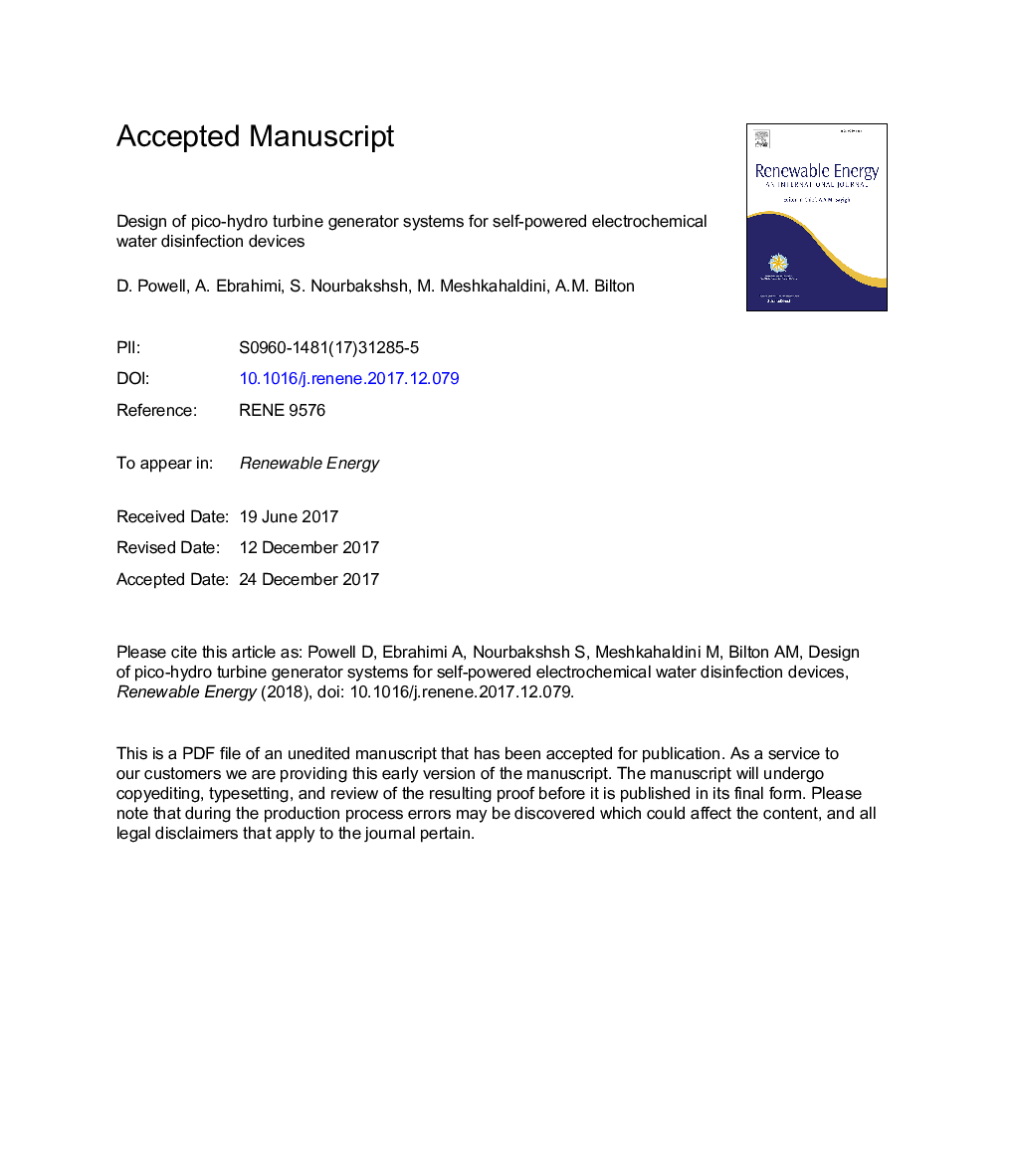| Article ID | Journal | Published Year | Pages | File Type |
|---|---|---|---|---|
| 6764596 | Renewable Energy | 2018 | 36 Pages |
Abstract
Previous research has demonstrated the potential of pico-hydro turbines to provide reliable electricity in applications such as rural electrification. However, the literature has primarily focused on the development of turbine systems for design environments where spatial and flow rate constraints tend to be non-restrictive. The work detailed in this paper presents the development of a novel, compact, high efficiency turbine capable of powering a compact electrochemical cell for off-grid water disinfection. The turbine with the generator is capable of generating nearly 100â¯W of power with a footprint of only 8â³ in length and 4â³ in diameter. A basic mathematical model of a DC generator is coupled to a computational fluid dynamics (CFD) turbine model to evaluate different system configurations. Following a Taguchi Method study to computationally explore the turbine design space, experimental testing of improved turbine configurations is shown to provide electrical power output improvements of 20%. Selection of a more compatible DC generator also provides electrical power output and efficiency improvements of a factor of 2 and 2.5 respectively.
Related Topics
Physical Sciences and Engineering
Energy
Renewable Energy, Sustainability and the Environment
Authors
D. Powell, A. Ebrahimi, S. Nourbakhsh, M. Meshkahaldini, A.M. Bilton,
